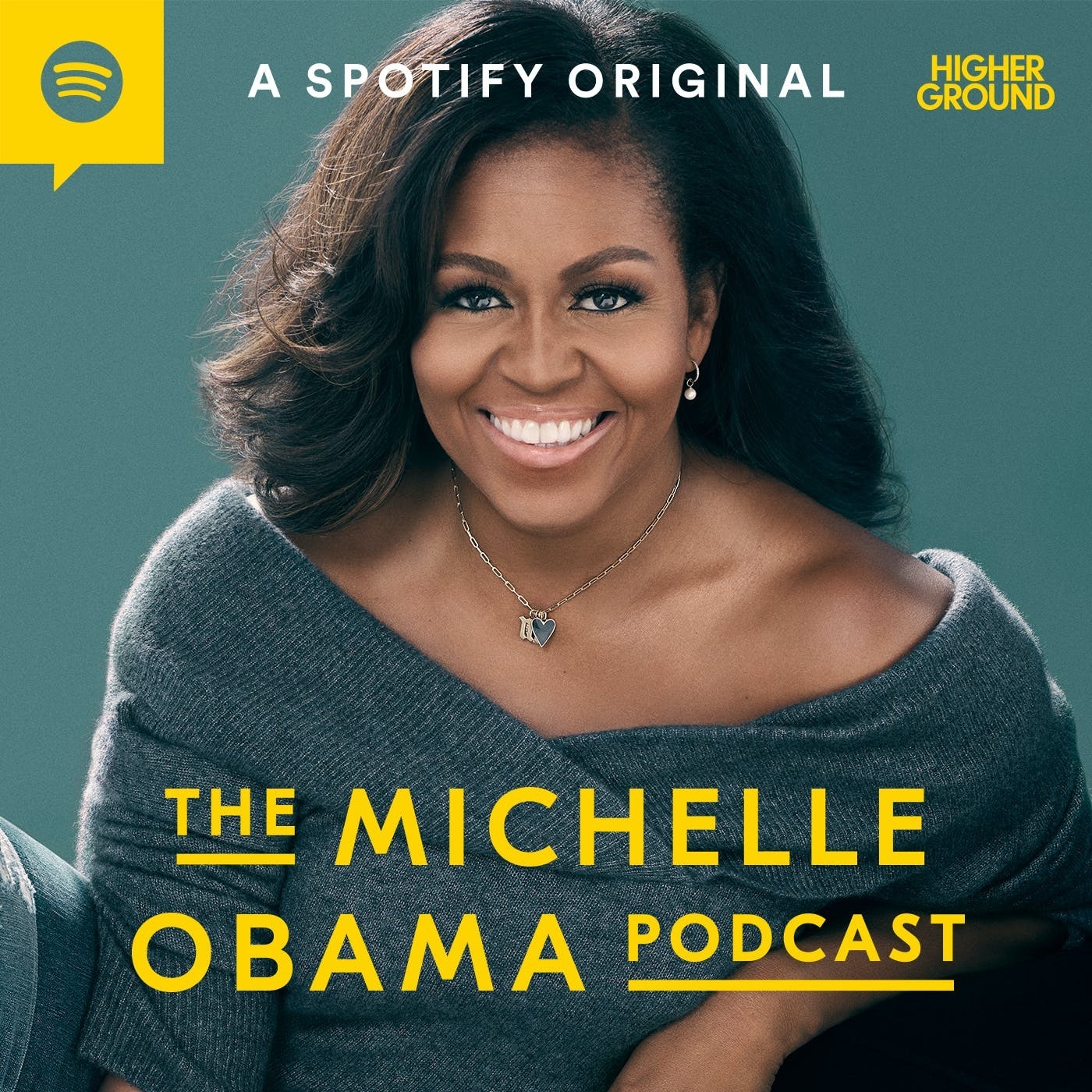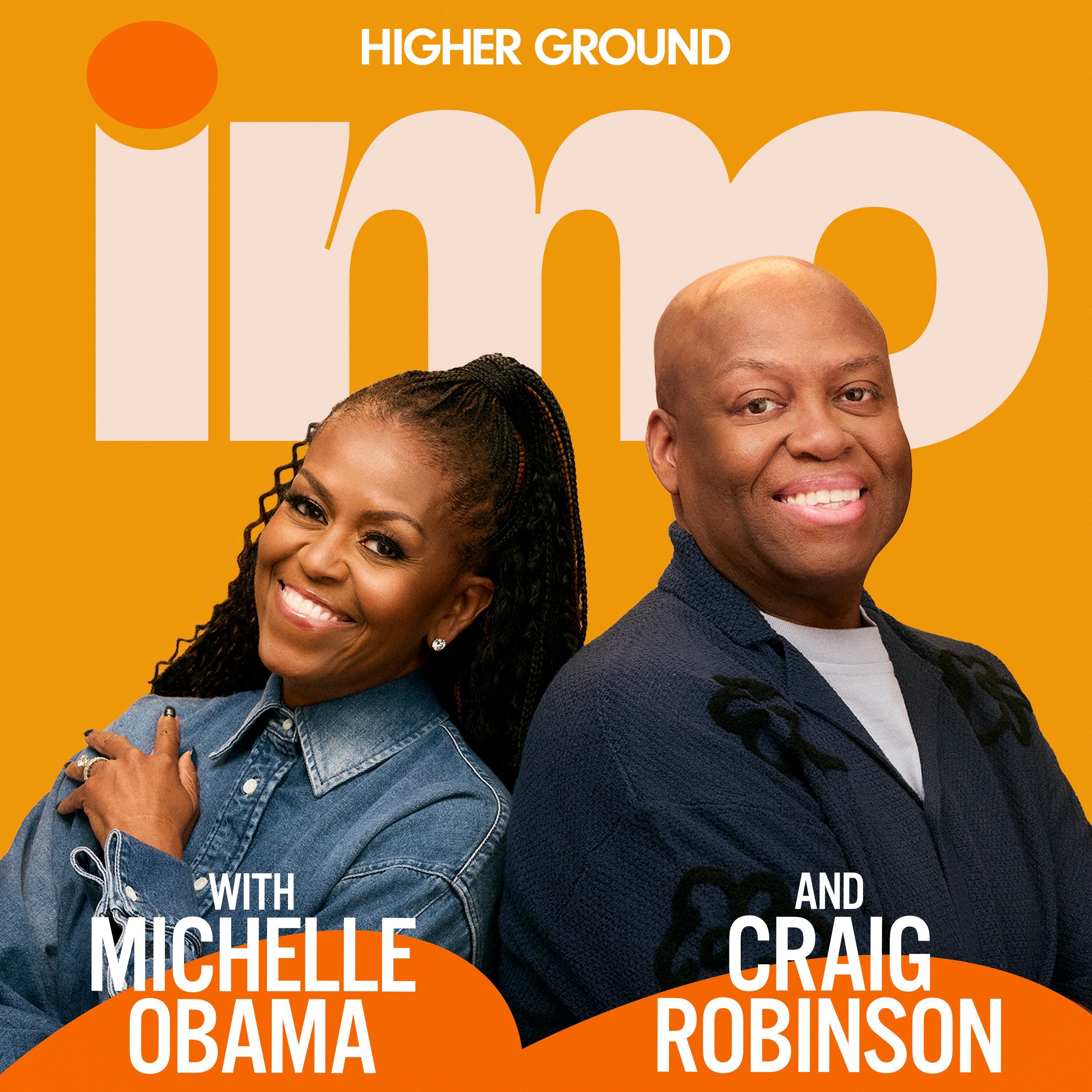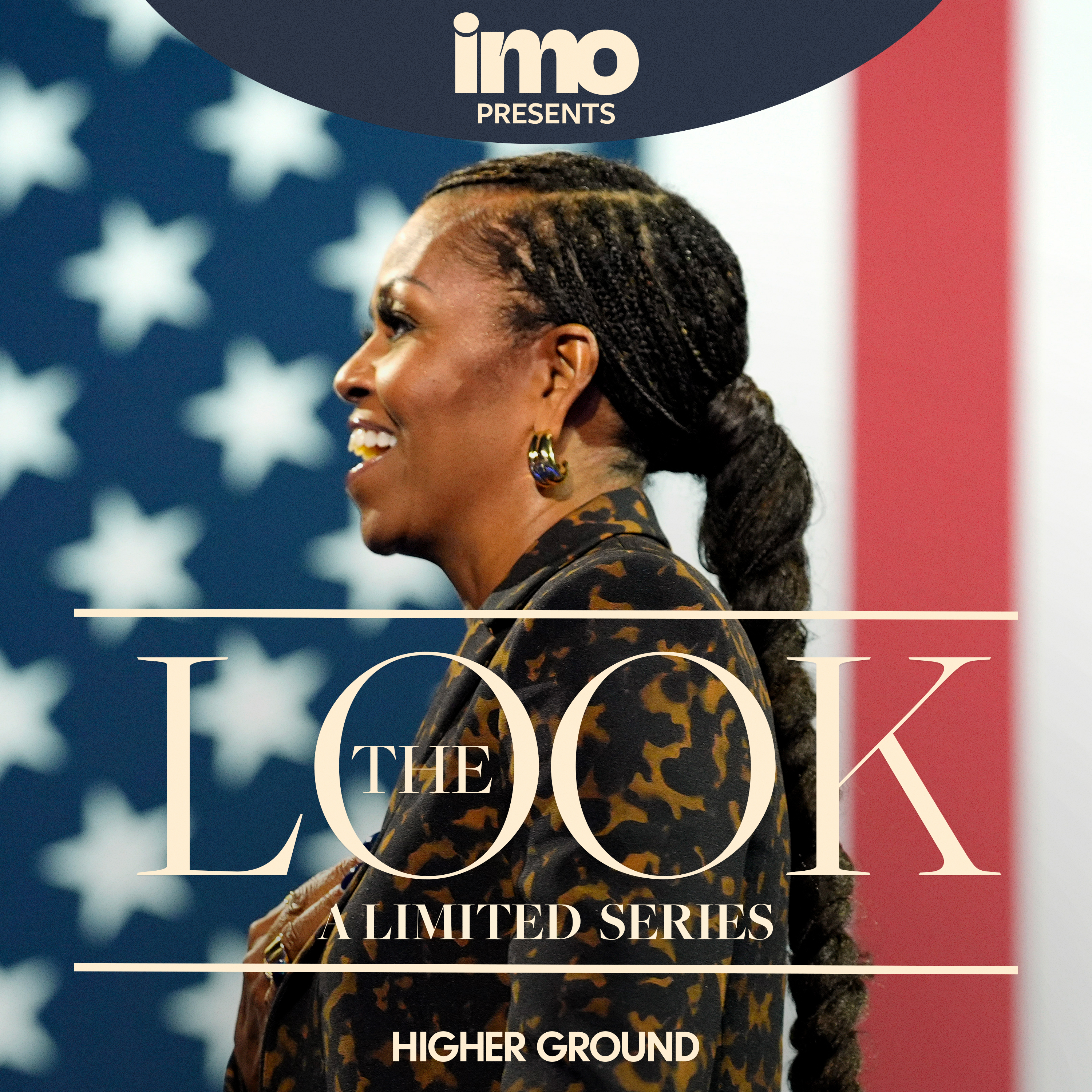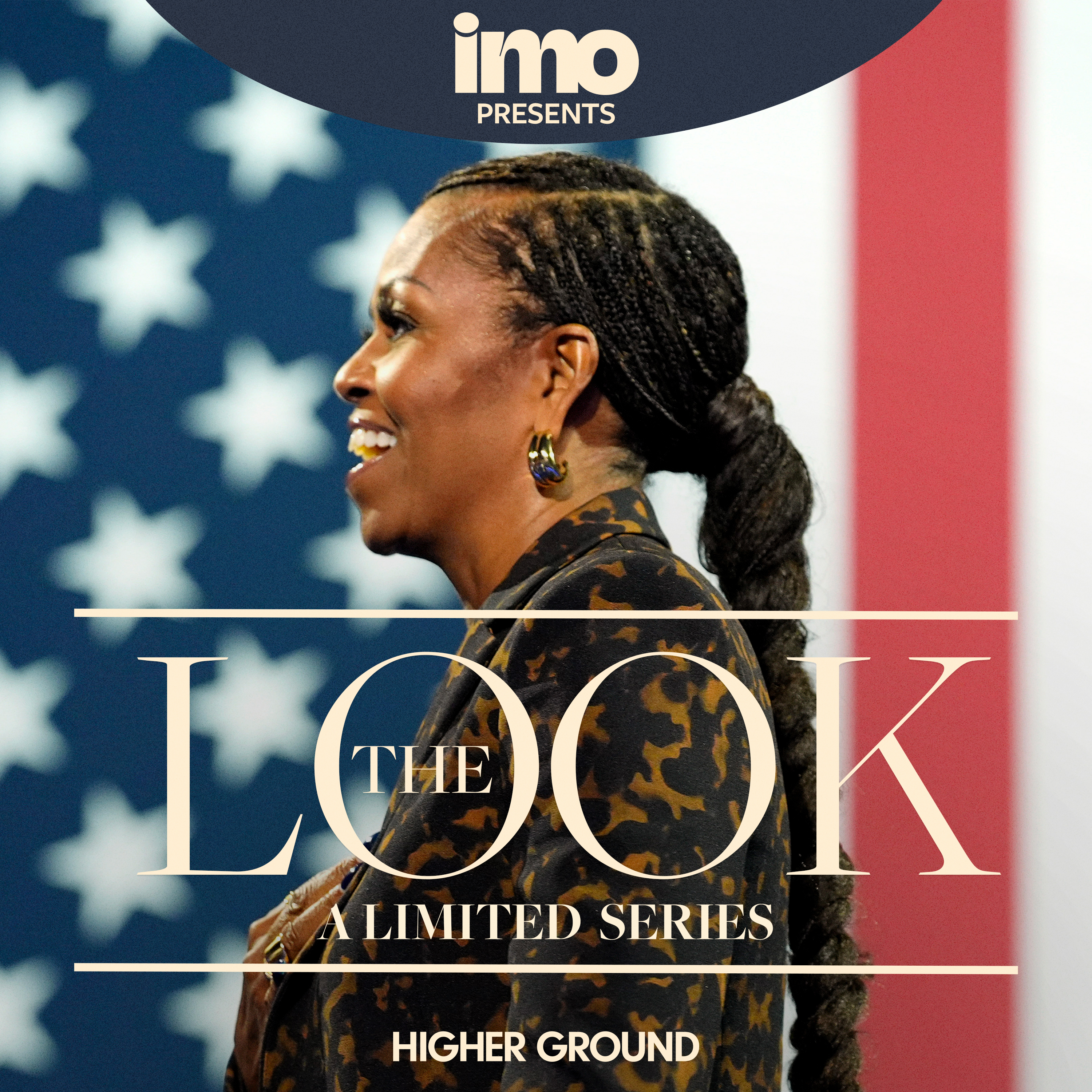Introducing “The Sum of Us”
In a new series from Higher Ground, author Heather McGhee embarks on a road trip across Covid-era America, unearthing stories of American hope and solidarity in a time of great division and peril for our democracy.
In the first episode of the podcast, we’ll meet Heather and learn more about her journey—from rural Maine to the coast of California— as she meets extraordinary Americans who are crossing demographic, cultural and political lines to shape their communities for the better.
To listen to more of the show, subscribe to The Sum of Us on Spotify.
See Privacy Policy at https://art19.com/privacy and California Privacy Notice at https://art19.com/privacy#do-not-sell-my-info.
Press play and read along
Transcript
Speaker 1 Hi, everyone. I'm excited to share the debut episode of a new podcast from Higher Ground called The Sum of Us.
Speaker 1 In this podcast, host Heather McGee travels all over the country to find ordinary people who are overcoming divisions and helping create better communities.
Speaker 1 From rural Maine to the coast of California, Heather teaches us about the surprising connections that are rebuilding America across our backgrounds, cultures, and differences.
Speaker 1 Too often these days, it feels like we're more divided than ever.
Speaker 1 And the stories in this podcast are a great way to remind us that there will always be good folks all over this country who are working to bring us closer together.
Speaker 6 I'll be honest with you, I just love this series.
Speaker 1 It's inspiring and energizing, and I have a feeling that you'll feel the same way. Subscribe to The Some of Us to learn more.
Speaker 8 I'm in Montgomery, Alabama, in the city's central park called Oak Park.
Speaker 10 There are not too many people here, only a handful.
Speaker 13 They're more groundskeepers than visitors.
Speaker 8 I see a children's swing set at a standstill.
Speaker 15 In the middle of the park, there's a wide flat expanse of grass, surrounded by remembering old oak trees.
Speaker 6 The quiet is eerie,
Speaker 20 it's like it's haunted by something that used to be here.
Speaker 21 Buried 10 feet beneath this wide lawn is a shell of what once was a dazzling public swimming pool that could hold over a thousand swimmers.
Speaker 17 This kind of grand resort-style public pool was commonplace in the country.
Speaker 8 In the 1920s and 30s, towns and cities tried to outdo one another, building the most elaborate public pools.
Speaker 25 During the oppressive heat of summer, swimming pools are a haven of refuge for young and old alike. Hundreds of such pools with well-equipped bathhouses have been constructed by WBA labor.
Speaker 26 By World War II, there were some 2,000 pools like this across the country. The Montgomery Pool Pool was grand and beautiful, a public work for all,
Speaker 19 but not really all.
Speaker 7 Like so many public pools across the country, the Montgomery Pool was reserved for whites only.
Speaker 15 In the 1950s, Black families throughout the country argued in courts that their tax dollars also funded these public goods, including the pools, so their kids should be able to swim in them too.
Speaker 17 And when they couldn't, the results could be tragic.
Speaker 23 In the summer of 1953 in Baltimore, a 13-year-old boy, Tommy Cummings, a black boy, drowned in the rough waters of the Patapsco River because there was no integrated pool where he and his friends, two white and one black, were allowed to swim together.
Speaker 10 The NAACP sued the city to integrate the pools and prevent needless deaths like Tommy's.
Speaker 14 When across the country, courts began to order the integration of public pools, many cities refused.
Speaker 8 Like in Montgomery, where effective January 1st, 1959, the city council chose to drain the public pool rather than share it with black people.
Speaker 12 The big,
Speaker 7 beautiful public treasure, one of the city's gems that had brought pride and joy to white Montgomery, they chose to drain and bury it rather than allow black neighbors to use it.
Speaker 19 This phenomenon of draining public pools rather than integrating them didn't just happen in the Jim Crow South.
Speaker 18 It happened all over the country.
Speaker 23 in West Virginia, Ohio, Washington state.
Speaker 24 As someone who studies inequality for a living, I became kind of obsessed with these drained public pools.
Speaker 8 I looked up old records, visited sites where they were buried.
Speaker 23 I kept thinking about how so many white people chose to lose out on something they once cherished, chose to destroy a nice thing rather than share it.
Speaker 16 It made me wonder why.
Speaker 23 Why can't we have nice things in this country?
Speaker 21 I mean, public goods, like truly universal health care, a well-funded school in every neighborhood, these things that really benefit all of us.
Speaker 8 My name is Heather McGee, and I've spent my career in public policy trying to find solutions to our country's biggest economic problems.
Speaker 33 I've been traveling the country in search of the answer to that question.
Speaker 10 I wrote a book about what I found called The Sum of Us. And ultimately, I learned that the reason we don't have nice things is because of this zero-sum mentality we have about race in America.
Speaker 23 The idea that if people of color gain something, then white people have to lose something.
Speaker 11 This kind of thinking has led our country to drain the pools, but not just the literal swimming pools.
Speaker 21 the pools of resources for all of us, from healthcare to housing.
Speaker 2 But it wasn't always like this.
Speaker 8 There was a time when this country invested in nice things, like in the 1930s with the New Deal.
Speaker 25 All the energies of government and business must be directed to increasing the national income, to putting more people into private jobs, to giving security and a feeling of security to all people in all walks of life.
Speaker 13 The U.S.
Speaker 29 created Social Security, the GI Bill, and massive investments in affordable home ownership.
Speaker 25 Attractive home of John and Margaret Bryant, the home they've always dreamed of, the happiest investment they have ever made. At last, the Bryants have all the space they need.
Speaker 13 All of these public goods helped to set one of the highest standards of living in the world in the 1950s. The greatest middle class the world had ever seen.
Speaker 32 But it was for one type of American only.
Speaker 32 The government purposely omitted Black neighborhoods from investment in home ownership.
Speaker 29 The Social Security Act excluded the two job categories that most Black workers were in, domestic work and agricultural work.
Speaker 29 Even the GI Bill benefits through mostly segregated housing and education sectors.
Speaker 32 So when the civil rights movement brought about the racial integration of this country, something else changed.
Speaker 29 The majority of white people in America stopped supporting the Party of the New Deal once it also became the Party of Civil Rights.
Speaker 38 We must not approach the observance and enforcement of this law in a vengeful spirit. Its purpose is not to punish.
Speaker 38 Its purpose is not to divide, but to end divisions, divisions which have lasted all too long.
Speaker 38 Its purpose is national, not regional.
Speaker 7 Inequality began to grow decade after decade.
Speaker 17 And now, here in the birthplace of the American dream, we have one of the most unequal economies, with housing, health care, college, retirement increasingly out of reach for most people.
Speaker 7 When I got to Montgomery and walked the grounds of Oak Park, I felt like I was on to something.
Speaker 18 Like there was something essential buried there, rooted deep in history.
Speaker 2 This beautiful pool we all lost out on.
Speaker 14 Not just people of color.
Speaker 4 White people lost out on those pools too.
Speaker 2 Racism ultimately hurts all of us.
Speaker 8 I mean, I know that racism always hits its intended target, people of color, first and worst.
Speaker 24 I'm saying this as a descendant of enslaved people, but I don't think we've really come to understand how much racism costs everyone.
Speaker 35 This country's economic dysfunction, the poverty wages, the collapsing bridges, healthcare that's out of reach, underfunded schools comes from our inability to share the pool.
Speaker 11 to really see ourselves as one people, worthy of investment.
Speaker 2 And I've realized, because racism has a cost for everyone, we've all got a stake in overcoming it.
Speaker 32 When I was 22, just out of college, I got an entry-level job at a new think tank called Demos.
Speaker 13 Demos was focused on using research and advocacy to address inequality. A decade later, in my early 30s, I became the leader of the organization.
Speaker 32 I often went on TV to talk about solutions to the country's biggest economic problems.
Speaker 7 What stuck out to you?
Speaker 39 Really, the overarching lack of accountability for the number one issue on most Americans' minds, which is jobs.
Speaker 3 But I wanted to get you to put this in context.
Speaker 4 Higher education used to be a public good in this country.
Speaker 2 And I'd like to hear from all of you.
Speaker 30 Ms. McGate, would you like to start?
Speaker 32 Thank you, Senator Warren. That is an excellent question.
Speaker 3 I'll just say a few things that could be done.
Speaker 35 One, Congress could stop giving preferential treatment to this kind of income.
Speaker 26 One day, I was on live TV talking about economic policy and national politics, and a man wanted to talk about something entirely different. His name was Gary from North Carolina.
Speaker 28 I'm a white male, and I am prejudiced.
Speaker 28 The reason it is, it's something I wasn't taught, but it's kind of something that I learned. What can I do to change, you know, to be a better American?
Speaker 8 Gary described his fear of black men and the things he saw on the news about crime and drugs and gangs.
Speaker 10 And there, live on national television, he asked me how he could change his racist thoughts.
Speaker 19 I took a breath and told him.
Speaker 40 Thank you so much for being honest and for opening up this conversation because it's simply one of the most important ones we have to have in this country.
Speaker 40 Your ability to just say, this is what I have. I have these fears and prejudices and I want to get over them is one of the most powerful things that we can do right now at this moment in our history.
Speaker 40 So thank you.
Speaker 41 So what can you do?
Speaker 40 Turn off the news at night?
Speaker 40 Because we know that actually nightly news and many media markets that have been studied actually overrepresents African American crime and underrepresents crimes that happen by white people.
Speaker 40 Join a church if you are a religious person that is a black church or a church that is interracial. Start to read about the history of the African American community in this country.
Speaker 40 Foster conversation in your family and in your neighborhood where you're asking exactly those kinds of questions.
Speaker 29 The exchange between Gary and me went viral, and it shifted something for me.
Speaker 13 I realized that the Garys of the world have been sold a story.
Speaker 4 A story about their fellow Americans.
Speaker 29 A story that makes them not want to share the pool.
Speaker 13 And no amount of research papers or legislative testimony was going to change that.
Speaker 13 Laws are just expressions of a society's deepest beliefs.
Speaker 42 Ultimately, the beliefs have to shift in order for outcomes to change.
Speaker 32 So I did something unexpected.
Speaker 13 I quit my dream job to try and understand what it is we believe about one another.
Speaker 30 I traveled the country.
Speaker 29 I heard from everyday Americans, from people fighting for higher wages.
Speaker 43 Joining the movement, I then understood that we were kept in poverty on purpose. This was something the system had built purposely to keep workers divided.
Speaker 4 Communities protecting their water.
Speaker 17 Our white organizations that have historically had more power, currently have more privilege, and definitely have more information, are going to be some of our strongest allies.
Speaker 4 People defending reproductive freedom.
Speaker 21 It took our tears, it took fallouts, it took disagreements.
Speaker 4 I'm really proud about that.
Speaker 3 It may not look like it, and you may not be hearing about it, but there's a groundswell happening all over this country.
Speaker 7 It's often under the radar, the big national news, but ordinary people in overlooked parts of America are owning up to what racism has cost us.
Speaker 10 Even though we're in an era of intense division, I've learned that when we truly see each other, have honest conversations, and do the tough and and sometimes messy work of crossing boundaries to build solidarity, then we can win solutions to the problems that are keeping most of us up at night.
Speaker 10 The racial justice uprisings and the pandemic have been turning points.
Speaker 30 People are demanding more from their government, from their jobs, and from each other.
Speaker 44 Across the country, labor is on the march.
Speaker 44 In California and Oregon, 24,000 nurses and other health care workers at Kaiser Permanente Permanente voted to authorize a strike over pay and better working conditions.
Speaker 45 New community fridges are meeting a critical need. Volunteers keep public refrigerators stocked.
Speaker 46 Years of protests by Indigenous people, local farmers, and environmentalists resulted in TC Energy shutting down the Keystone XL pipeline.
Speaker 36 Because the truth is, things that really matter in life, we can't do by ourselves.
Speaker 34 I can recycle, but I can't fix global warming.
Speaker 13 I can read to my son, but I can't make sure his neighborhood school is well-funded.
Speaker 23 But when we come together, those nice things can happen.
Speaker 13 That's the benefit of cross-racial solidarity, what I call the solidarity dividend.
Speaker 23 It gives us the collective power to win nice things for all of us.
Speaker 8 And I found it in some really surprising places.
Speaker 21 So I've been traveling the country, witnessing solidarity in action, discovering how people are coming together despite everything telling us not to.
Speaker 26 People from all backgrounds shared their America with me.
Speaker 47 In Kansas City, because I never thought of holding white workers' hands and talking about you gonna march or do anything together.
Speaker 4 In the mountains of Nevada.
Speaker 47 We are all here because somebody gave up something. And it's not just us as Native people.
Speaker 47 All of us have a history that somebody way back when did something, they made a decision that changed the course of their family's history and the dialogue here in the United States.
Speaker 19 In rural Maine.
Speaker 33 Hello, beautiful babies. Hi.
Speaker 5 Oh, a beautiful ghost. Look at your eyes.
Speaker 37 I think it's that that thing of being scared of what you don't understand when you live in a very white town.
Speaker 10 On the Pacific coast of California.
Speaker 8 This is like the happiest I've been in a really long time.
Speaker 12 This is really great.
Speaker 12 So great.
Speaker 2 In Memphis.
Speaker 42 I looked out and saw the bouquet of people. And that's what God loves: a bouquet.
Speaker 2 Everything he made
Speaker 9 is diverse.
Speaker 13 My journey made me a more hopeful person.
Speaker 31 I saw people overcome distrust and learn to fight for each other instead of against each other.
Speaker 13 So many of the people I met took inspiration from knowing that despite the brutal legacy of racism in America, We've made progress before.
Speaker 23 We've come together, fought for change, and chosen to swim in the same pool.
Speaker 33 All right, so here we're coming up
Speaker 48 a big American flag.
Speaker 8 One of my first stops was Kansas City, Missouri.
Speaker 48 And then this
Speaker 5 pool house says Swope Park Pool.
Speaker 24 After flying in, my team and I drove straight to another historic pool, one of the few that didn't get drained.
Speaker 49 It's beautiful.
Speaker 48 There's water still in it right now.
Speaker 30 Just like in Montgomery, white leaders in Kansas City fought against black swimmers using the pool, and they closed the pool during the legal battle to integrate it.
Speaker 30 But the community came together and it reopened in 1954.
Speaker 34 And on that summer day, a small group of black and white swimmers showed up to swim together.
Speaker 13 And so it stands today.
Speaker 17 When I walked the grounds, I noticed that the Kansas City pool is also surrounded by oak trees, just like the buried pool in Montgomery.
Speaker 48 You know, it's funny, in Montgomery Oak Park, I picked up some of these little acorns from the trees just to remind myself about how,
Speaker 49 you know, things regenerate like these generations pass but ultimately we've still got these roots that we need to deal with and
Speaker 49 just a reminder of how recent it all was
Speaker 23 these remembering trees have now seen generations of children and families of all races swimming together, basking in the sun and enjoying this public good.
Speaker 23 Enjoying a nice thing.
Speaker 33 It's what can happen when we're willing to be in it together.
Speaker 22 When we decide the pool is for all of us.
Speaker 12 From Higher Ground, I'm your host, Heather McGee.
Speaker 10 And this is The Sum of Us, a podcast documenting my journey journey around the United States in search of hope and solidarity.
Speaker 35 Next time on The Sum of Us, I'm going to take you to Memphis, where I met Miss Scotty Fitzgerald, who lived near pollution her whole life.
Speaker 9 You can see the pipes and the smoke coming out of the pipes, you know, and then you can smell them stinky rotten eggs.
Speaker 3 When a new pipeline promised more pollution for Scotty, people came together to do what no one thought was possible.
Speaker 18 You don't fight oil and gas, you're never going to win.
Speaker 51 It's like to stop an actual pipeline building. I didn't know if that was possible.
Speaker 41 How Black Memphis and White Memphis came together, despite their differences, to protect something precious on our next episode.
Speaker 4 From higher ground, this is The Sum of Us, created and hosted by me, Heather McGee, and produced by Futuro Studios.
Speaker 52 Our producers are Cosam Shepard, Ryan Kailoth, Emil Seikiros, Joaquin Cutler, and Juan Diego Ramirez, with help from Liliana Ruiz, Sophia Lowe, Susannah Kemp, and Alyssa Vladimir.
Speaker 52 Our senior producers are Nicole Rothwell, Jeannie Montalvo, and Fernanda Echabari.
Speaker 13 We're edited by Sandy Ratley and Maria Garcia.
Speaker 4 Executive produced for Futuro by Marlon Bishop.
Speaker 32 Mixing by Stephanie LeBeau and Julia Caruso.
Speaker 52 Research by Lynn Cantor and Carolyn Lipka.
Speaker 50 Executive producers for Higher Ground are Mukda Mohan, Dan Fierman, Anna Holmes, and Janae Maribel.
Speaker 41 Jenna Levin is our editorial assistant.
Speaker 52 Executive producers for Spotify are Daniel Daniel Eck, Don Ostroff, Julie McNamara, and Corinne Gilliard.
Speaker 32 Our original music and theme song is by The Sacred Souls.
Speaker 41 Join us for the next episode of The Sum of Us, a podcast in search of hope and solidarity.
Speaker 17 To hear more of the show, subscribe to The Sum of Us.



